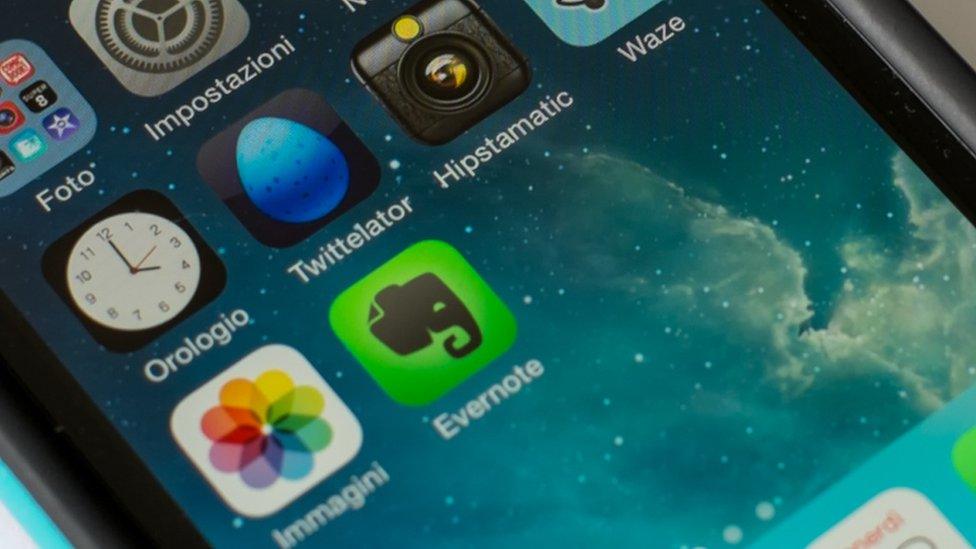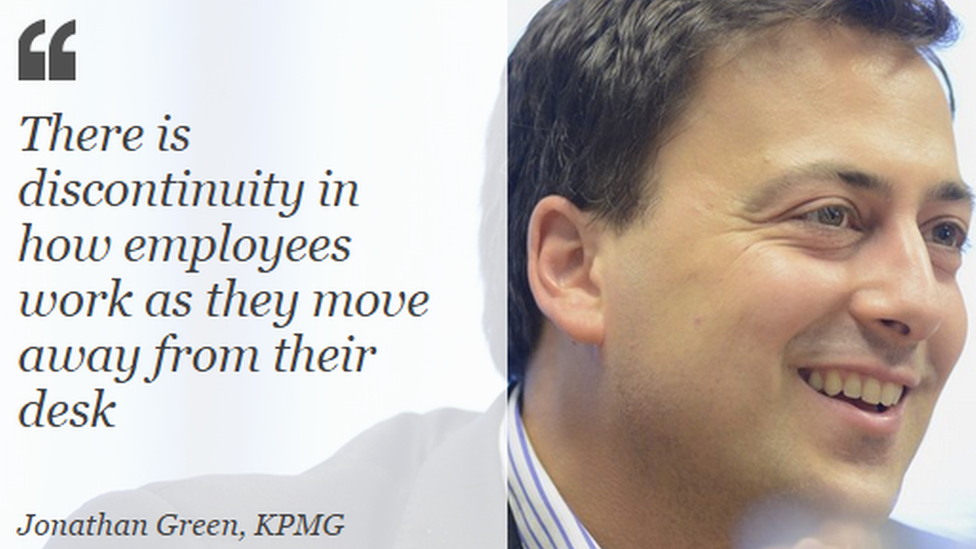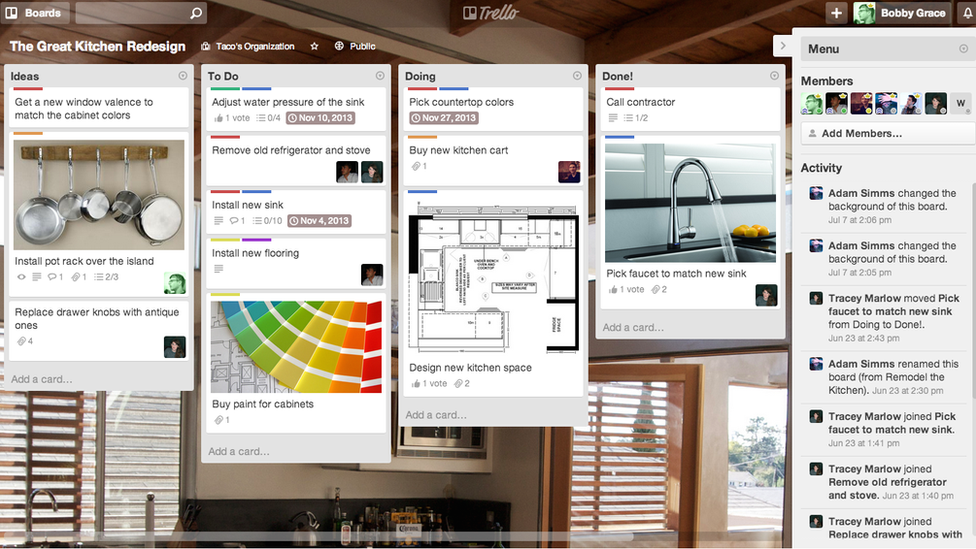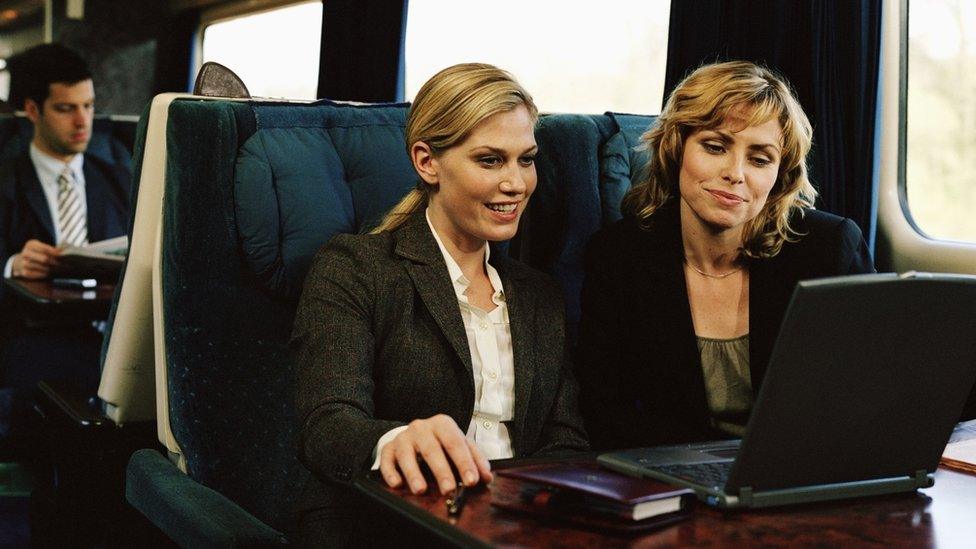Are productivity apps more hype than help?
- Published

Do productivity apps lighten the load or just make us work for longer?
There are hundreds of apps claiming to help us become more productive, efficient and organised.
And the smartphone is to blame, says Dr Sharon McDonald, a reader in computing at the University of Sunderland.
"In theory, people can now make better use of what might have previously been 'dead time' - for example, making notes during the daily commute.
"Thus productivity apps tie in with the basic notion of increasing productivity by using one's time in a smarter way."
The sector is expected to be worth $58bn (£37bn) globally by 2016, according to app research firm VisionMobile.
And research from software company Salesforce.com last year suggested such apps can boost worker productivity by more than 34%.
But are they really more hype than help?
Exasperation v. addiction
They're a "massive" waste of time, thinks Crawford Warnock, managing director of PR and communications agency, Firstname Communications.
"I have used Evernote, Outlook, reminders on the iPhone, Procraster and stacks of others. They all follow the same pattern - enthusiastic use and exploration followed by a moment of frustration, and then they fall off."
He is not alone in experiencing app exasperation. Yet others swear by them.
David Carr, strategy director at marketing and technology agency, Digitas LBi, says he is "addicted" to Evernote, the popular cloud-based app designed for note taking, archiving, and collaboration.


Productivity apps: 2015 Webby Award winners and nominees
Evernote iOS app
Pocket
Swipes
Humin
Boxer

Having stuck doggedly with Delicious - the social bookmarking service - to store links to interesting articles, the experience became "so bad" that he fell into the arms of Evernote.
"Now I'm addicted to it. It has transformed how I capture thoughts, insights and articles. I've become a taxonomy geek happily tagging everything I come across for later recall."
There is discontinuity in how employees work as they move away from their desk

Mr Carr has set up nearly 2,000 tags for his saved content and expects to add many more.
"It lets me get on with the actual thinking and collaborating rather than chasing down elusive examples," he says.
'Achieving more'
But Jon Cunningham, consultant at business development agency, Hob-Nob New Business, takes an opposing view.
"Evernote became an unmanageable beast," he says. "Too many search variables, and too difficult to discern the important and urgent from everything else."
Instead, he was seduced by the charms of Trello, a project management app that uses "cards" and "boards" to segment projects and allocate tasks between colleagues.
It has won his heart - for now - chiefly enabling him to operate an "empty email inbox policy".

Trello "boards" help colleagues collaborate on projects
"I can forward emails to a Trello inbox then allocate the job to another person ...it's a much more useful tool for getting things done," he says.
Tom Roberts, managing director of Tribal Worldwide London, goes so far as to say that Trello runs his life.
"Right now, we have a large pitch on and we are using Trello to run and orchestrate the entire process. For me it's less about time saving, exactly, and more about achieving more during the working day."
Joined-up working?
But the smartphone has also become a double-edged sword, facilitating the "always on" culture and eating into our leisure time.
And Jonathan Green, a director at consultancy KPMG, says that while many productivity apps are "profoundly useful at an individual level", they have limited benefits for employees of larger organisations due to lack of integration with existing IT systems.

While some swear by productivity apps, others find them a waste of time
"It means there is discontinuity in how employees work as they move away from their desk," he says.
Security concerns
This lack of integration also raises data security issues, something LBi's Mr Carr acknowledges.
He says he and some of his colleagues are using the Evernote app via a personal, free or premium account, which has security implications because they are not specifically designed for business.
"While we wouldn't use the service for highly sensitive material, this does mean that non-critical information, even if it is raw notes, recordings or web links, is being stored on US servers."

Lack of integration with corporate IT systems can make such apps a security risk
This means the data could theoretically be nabbed by US authorities under the USA Patriot Act.
And with the recent decision by the European Court of Justice to tear up the Safe Harbour data-sharing agreement between the US and Europe, businesses need to be even more alert as to where and how their potentially sensitive data is being stored.
Cutting the slack
Despite such drawbacks, there is an undoubted thirst for tech that helps - or seems to help - make our working lives easier.
Take Slack, for example, a popular real-time messaging app that spans desktop and mobile.
Alex Hamilton, chief executive of Radiant Law, a corporate law firm with offices in London and Cape Town, says his firm adopted the app to help tackle the deluge of emails.

For many, productivity apps help us stay in touch with the office even while travelling
"We have pretty much got rid of internal emails," he says. "The ability to channel discussions is very powerful, and the ability for anyone to join open conversations has helped us really boost transparency across the firm.
"Most of all, it's just really easy to use and people like using it."
Fun and simplicity seem to be key to a productivity app's success.
"Like any good relationship, you have to commit fully to your chosen productivity app as it's easy to slip out of using it when the honeymoon period is over," says Jason Cartwright, boss of web development agency, Potato. He is a fan of both Trello and Slack.
But try telling that to Crawford Warnock. He maintains that his best investment has been a wallboard "and more pens".